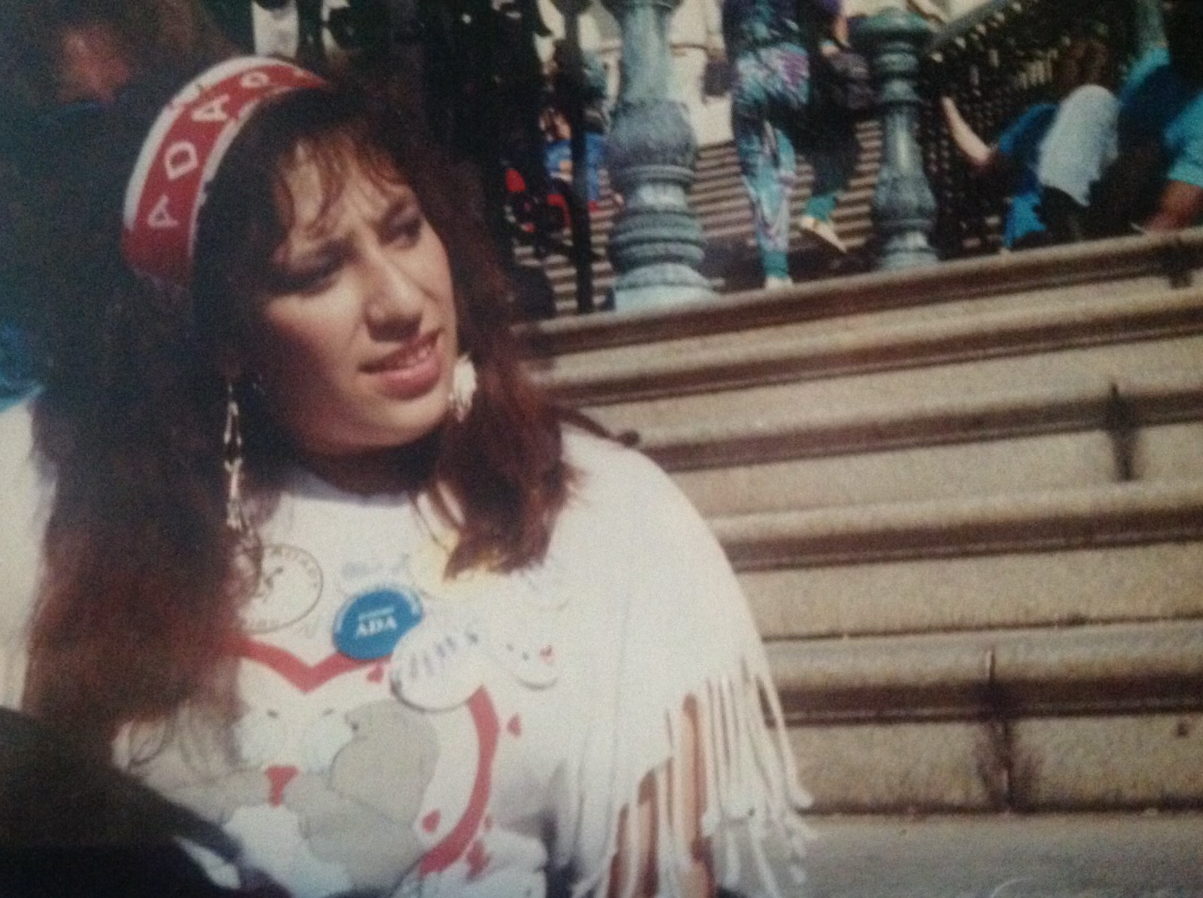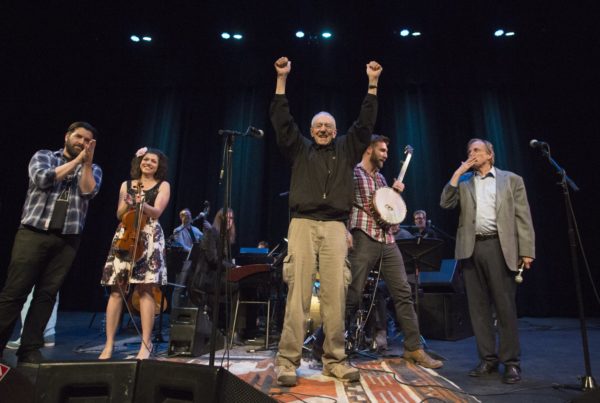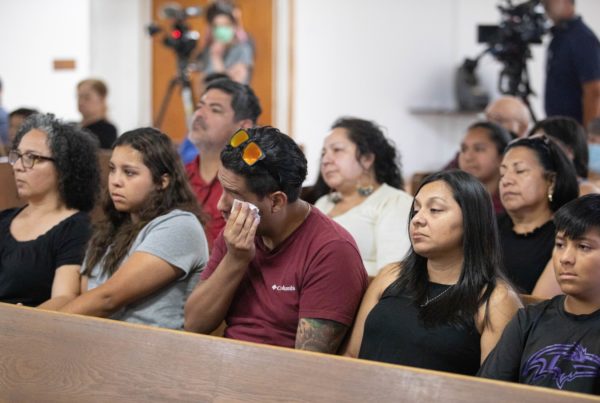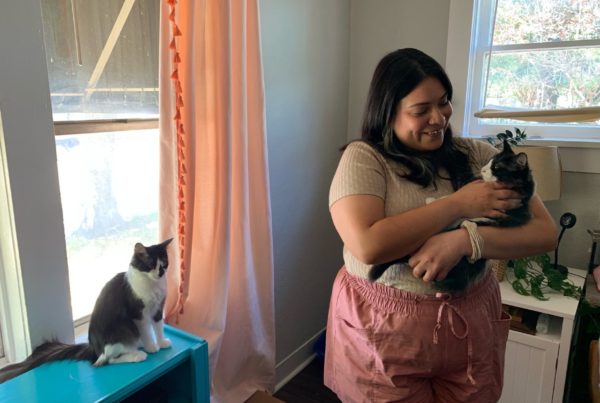The Americans with Disabilities Act was signed into law July 26, 1990, effectively prohibiting discrimination against people with disabilities in all areas of public life. The historic win for disability rights came after the “Capitol Crawl,” a 1990 protest where people with disabilities crawled up the U.S. Capitol steps demanding passage of the law.
Maria Palacios, an author and disability rights activist who was at the protest 32 years ago, remembers that the massive group of people in Washington was something she’d never experienced before.
“As a disabled person, the power of seeing hundreds of disability activists – all kinds of disabilities – gathering in Washington, D.C., for something that was as monumental as passing a law, it felt so unreal,” Palacios said. “And here I was, 24 years old, you know, and I was more like following the leaders, following the the crowd, you know, the ones who were like carrying the history so far, and I felt so insignificant and yet so important at the same time.”
Palacios said that despite the progress, there’s still a long way to go.
“Before the ADA, people could be discriminated against just because they were disabled: ‘No, we cannot hire you because we don’t hire disabled people.’ ‘No, we cannot transport you.’ ‘No, you cannot dine here.’ I mean, simply, we could just be denied access to life. The saddest part is that we are still being denied access to life, to life resources, to participating in life, to community life. We’re still having to fight for the very same things,” Palacios said.
“You know, the ADA did wonders for the logistics of the law, I guess, for putting things in writing, for making sure that we had something to flag in front of an attorney or a judge or a court. But as far as society is concerned, I hate to say this, but because of ableism – and it’s so deeply rooted in the social structure of our culture – very little has changed.”
The disability rights movement that passed the ADA also left a lot of people behind, Palacios said.
“It left women behind and left people of color behind. And I consider myself still very privileged and lucky to be able to represent life with a disability from so many intersections: to be who I am as a brown, disabled immigrant, a queer mother. It is literally going back in time. But it is the power of of advocacy activism, the power of knowing that when you come in numbers, you become powerful.”
Palacios said the hardest part of the Capitol Crawl experience was going back to reality once “the cameras were off and the lights were gone.”
“And the reality that nobody noticed us anymore, because, you know, we all go back to the invisibility of ableism. But that’s what that day felt to me, like we had conquered a world that never wanted disabled people; that for the first time ever we could, like, really feel that we deserve to make those demands, that we deserve to say: ‘We are here. We deserve to be here.’ It was life-changing.”














